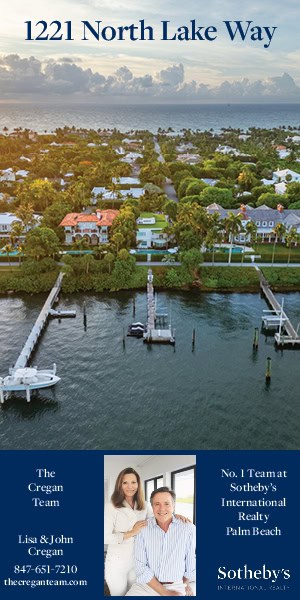
Russell “Rusty” Drumm, legendary surfer, fisherman, writer, and co-founder of The Montauk Oceans Institute (MOI), who sadly passed away in January 2016, would have been honored by the event that took place there on August 21 in his memory. The “First Summer Symposium” featured a lecture given by Lia Colabello, Director of Global Partnerships & Community Engagement at The 5 Gyres Institute, located in Los Angeles, CA on “Plastics in the Ocean.” The lecture coincided with a “Memorial to Rusty Drumm,” featuring tributes by Bettina Stelle, MOI co-founder and Gregory Donohue, member, Board of Directors, Montauk Point Lighthouse, and a special song composed, written, and performed by Tony Villar, longtime surfing buddy of Rusty Drumm’s, entitled “Rusty’s Gift.”
The symposium was set against the “Plastic Ocean” exhibit focusing on plastic pollution in our ocean, that opened this past July and runs until Thanksgiving, curated by local artist Scott Bluedorn. Other works exhibited are by artists Cindy Pease Roe, Billy Strong, Peter Spacek, and Rossa Cole. All the artwork was created from recycled and locally found plastic material. Hanging from the ceiling were plastic turtles, seagulls, and a floor to ceiling “plastic whale” named “Drummbeat,” in honor of Rusty, which was assembled by Montauk elementary school children and collected from Montauk beach debris.
Lia Colabello of The 5 Gyres Institute gave a presentation on the global health crisis of plastic pollution. Her lecture focused on how plastics detrimentally affect the ocean, marine-life, and our food chain. She offered four major solutions to this man-made problem.
Colabello noted that researchers estimate that 8 million metric tons of plastic enter the ocean each year. Most plastics are from plastic packaging made from petrochemicals and built to last—some for hundreds of years. There is an estimated 5.2 trillion particles of this “plastic smog” weighing in at 270,000 tons in our oceans worldwide. It fragments into tiny pieces due to wave action, photo degradation, and animals eating it. The plastic gets caught up in vast circular currents, called gyres and is difficult to recover once out in the ocean.
Microplastics attract persistent organic pollutants like pesticides, flame-retardants and other industrial chemicals linked to human health problems—even cancer. A single plastic microbead can be 1 million times more toxic than the water around it because it absorbs pollutants like a sponge. As marine life eat the plastic, these pollutants can work their way up the food chain—and onto our plates. In 2015, President Obama signed The Microbead-Free Waters Act into law. Beginning in 2017, it will be illegal for companies to manufacture products (such as soaps, body washes, toothpaste, and other personal-care products), that contain plastic microbeads and by 2018 the sale of these products will be prohibited.
Larger pieces of plastic are also a problem. More than 600 species are impacted by plastic, through ingestion or entanglement—both of which can sicken or even kill them. Birds, fish, turtles, dolphins, sharks and even whales can be poisoned or trapped by plastic waste.
Colabello offered four major solutions to plastic pollution. Incentivize producers to recover and recycle packaging, as well as invest in innovative materials that are marine-degradable. Enact policy to ban plastics easily lost to the environment, such as shopping bags and microbeads. Educate consumers to reduce, reuse, recycle, recover, and rethink their use of single-use plastics. There is also conversation about investing in infrastructure in countries that need waste management and recycling facilities.
The “First Summer Symposium” was a significant action in the Montauk Oceans Institute’s mission to build community, educate, and heighten awareness surrounding our local ocean’s health. The MOI serves as a platform that enables the organizations, foundations, policymakers, and philanthropic voices of the community to pool their findings and ideas in solving today’s oceanographic issues.
www.montaukoceansinstitute.org
“The Montauk Oceans Institute is making a difference,” says Greg Donohue. “The message is getting out. Humans have to change their behavior to save the seven oceans of the world.” He reflects, “Rusty, a natural born lover of oceans, would have been proud of this exhibit.”












![Welcome to Le Beau Chateau, a grand French-style manor house originally built in 1937 on a 52± acre property restored and reimagined to perfection. Boasting pedigree, provenance and stunning design, 104 Dans highway has been magically transformed with a seamless infusion of bespoke finishes, quiet luxury and comfort. Represented by Rob Johnson of @brownharrisstevens. [link in bio]](https://hamptonsrealestateshowcase.com/wp-content/uploads/sb-instagram-feed-images/470917491_18481320940030135_2744230950629794022_nfull.webp)
![Located south of the highway on a quiet street, this airy and fresh, newly built 7 bedroom, 7.5 bath home exemplifies superb design with clean lines on all three levels. Bright and airy, with an open floor plan and walls of sliding glass doors overlooking the backyard and pool, this house is designed for today’s lifestyle. Represented by @sharonsternhomes of @sothebysrealty. [link in bio]](https://hamptonsrealestateshowcase.com/wp-content/uploads/sb-instagram-feed-images/470870424_18481119913030135_1232666844537840589_nfull.webp)
![This stunning waterfront home in Quogue offers direct access to Shinnecock Bay via a private boardwalk. 36 Second Neck Lane features expansive outdoor living spaces with a full kitchen, BBQ, pizza oven, and bar, plus a heated saltwater infinity pool and oversized hot tub. Represented by Nick Messina of @douglaselliman. [link in bio]](https://hamptonsrealestateshowcase.com/wp-content/uploads/sb-instagram-feed-images/470669759_18480889417030135_2117744731444738551_nfull.webp)
![Conveniently located in Water Mill, this turnkey one-level contemporary is sited at the end of a winding driveway on 1.60± private acres. The expansive, move-in ready residence has undergone a complete remodel and features 4 bedrooms and 3 bathrooms across 2,630± sq. ft. of living space. Represented by Craig Beem of @brownharrisstevens. [link in bio]](https://hamptonsrealestateshowcase.com/wp-content/uploads/sb-instagram-feed-images/470491935_18480720649030135_1941783907149758766_nfull.webp)
![Is there anything more magical than the holidays in the Hamptons? Maybe stress-free hosts who can actually enjoy them! To help you skip the last-minute scramble, we turned to expert Kathy Kuo for her top tips on getting your home holiday-ready 🎄🥂 [link in bio]](https://hamptonsrealestateshowcase.com/wp-content/uploads/sb-instagram-feed-images/470324287_553988460734287_2505109464299263530_nfull.webp)
![Cheers to holiday hosting! 🍸✨ Create the perfect at-home bar to keep the good times flowing all season long. From festive cocktails to cozy vibes, let your space shine as the ultimate gathering spot. [link in bio]](https://hamptonsrealestateshowcase.com/wp-content/uploads/sb-instagram-feed-images/470165157_1642639376465060_2596893328383899816_nfull.webp)
![A partially built 19,980± sq. ft. mansion on one of the Hamptons’ most prestigious streets, left abandoned since 2018, has finally found a buyer! The sprawling property — the largest oceanfront parcel on Meadow Lane, features arched windows and doorways, a flat roof with pyramids and conical peaks, plus a sandstone facade. Co-listed with @bespoke.realestate and @hamptonsluxurymarketleader of @thecorcorangroup. [link in bio]](https://hamptonsrealestateshowcase.com/wp-content/uploads/sb-instagram-feed-images/469724902_18479864281030135_7735465365115439625_nfull.webp)
